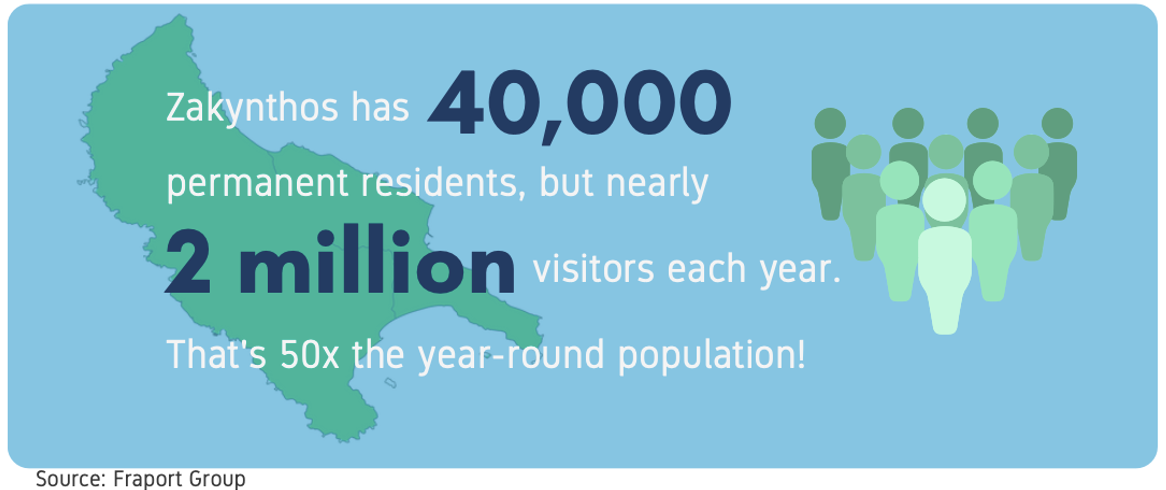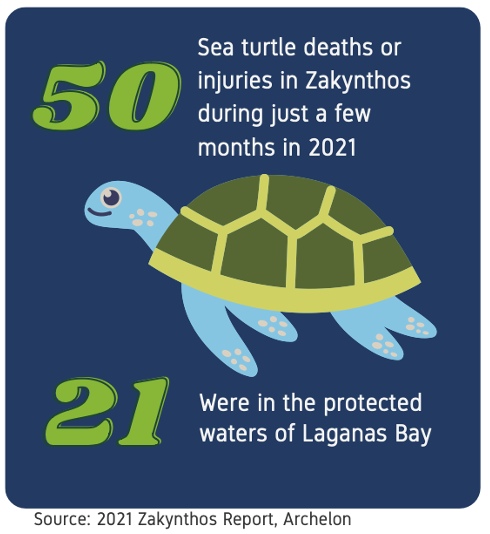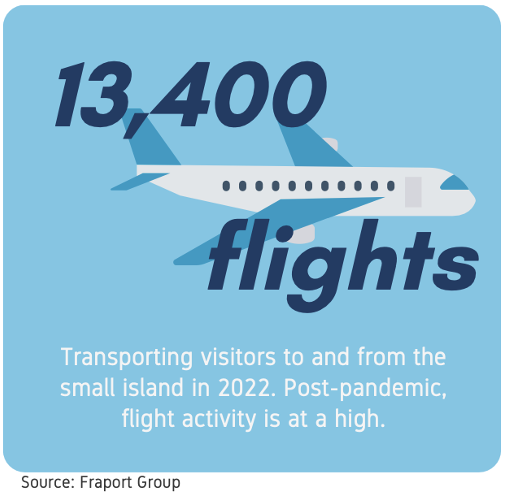Zakynthos is the main nesting area for sea turtles in the Mediterranean and is also one of the most visited islands in Greece. The influx of tourists and the island’s growing dependence on tourism have put the loggerhead population at risk with 80% of loggerhead sea turtles in the Mediterranean Sea nesting on the island. In addition, experts estimate that only 1 of 1000 hatchlings will reach adulthood as a result of the threat of predators, fishing nets, plastic debris, and human interference.
The Sea Turtles of Zakynthos

Female loggerheads in Zakynthos mate between March and June, they nest where they were born and have nested before, laying their eggs in the early summer months. It is essential to preserve nesting areas and keep them free from human intervention as sea turtles can travel thousands of miles, almost 3,000, to lay their eggs. Female loggerheads usually produce two or three nests and then do not produce eggs for up to three years, therefore disrupting their nesting habits and habitats threatens their long-term survival. Sea turtles use the reflection of the moon and stars on the waves to find their way back to the ocean, light pollution and over-development from beach-front restaurants and bars, boats and even cell phones can significantly disrupt their journey back to the sea. The beaches where turtles lay their eggs are invaded by immense amounts of sun-bathing tourists during the day, while in the evening the ubiquitous loud bars produce enough light pollution to disorientate the turtles.

Sea turtles are essential to maintain a healthy, balanced oceanic eco-environment. They maintain coral reefs and seagrass, control jellyfish populations, and provide nutrients that support coastal vegetation. Furthermore, over 100 types of animals and plants can live on a sea turtle’s shell; each shell has their own micro-habitat.
The European Commission has named the loggerhead sea turtle an endangered species in the European Union. They are also regarded as vulnerable by the International Union for the Conservation of Nature (IUCN).


